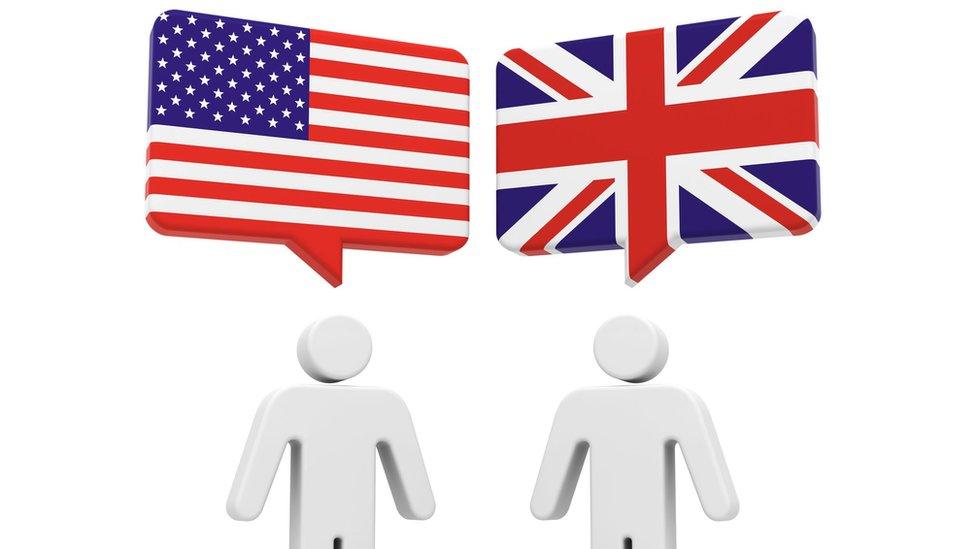YouGov survey: British sarcasm 'lost on Americans'
- Published

"With the greatest respect..."
Britons like to think they have a "special relationship" with the US, based on a common language and cultural, historical and political ties.
But, according to one of the UK's most respected polling companies, there's one chasm the English language can't always bridge - the British love of passive-aggressive statements.
In the words of YouGov, external, "half of Americans wouldn't be able to tell that a Briton is calling them an idiot".
YouGov showed a number of common British phrases, including "with the greatest respect", "I'll bear it in mind" and "you must come for dinner", to Britons and Americans.
"While not all the phrases show a difference in transatlantic understanding, there are some statements where many Yanks are in danger of missing the serious passive aggression we Brits employ," YouGov said.
The starkest difference was in the phrase "with the greatest respect" - which most Britons took to mean "I think you are an idiot", but nearly half of Americans interpreted as "I am listening to you".
Allow X content?
This article contains content provided by X. We ask for your permission before anything is loaded, as they may be using cookies and other technologies. You may want to read X’s cookie policy, external and privacy policy, external before accepting. To view this content choose ‘accept and continue’.

YouGov based its survey on a popular meme of British phrases and their subtext.
It's not clear who came up with the table, external, although it's done the rounds online for several years - and was first seen by the BBC in 2011 in a blog by Oxfam, external.
YouGov decided to show the same phrases, and each of the meanings, to about 1,700 Brits, external and 1,900 Americans, external, and asked them which matched their own interpretation the most closely.
The survey showed that some - though not all - of the stereotypes in the table were statistically correct.
There was plenty of common ground - for example, a majority of both British and US adults consider "I was a bit disappointed that" a polite way of saying "I am annoyed that" - rather than "it doesn't really matter".
But those in the UK are much more likely to consider "I'll bear it in mind" and "I hear what you say" to be attempts to brush you off.
And a higher proportion of Britons than Americans (44% to 31%) think "that is a very brave proposal" actually means "you are insane".

The British have a long history of sarcasm
Plenty of Americans working in the UK have complained about British passive-aggressiveness, or their annoying tendency to beat around the bush.
But UK expats have also complained about American insults directed at Brits.
One writer for BBC America came up with the following translations for American English, external:
At the end of the day, while the British may like to think they have a more sophisticated sense of sarcasm, they might have more in common with their American cousins than they think.
We'll bear that in mind.